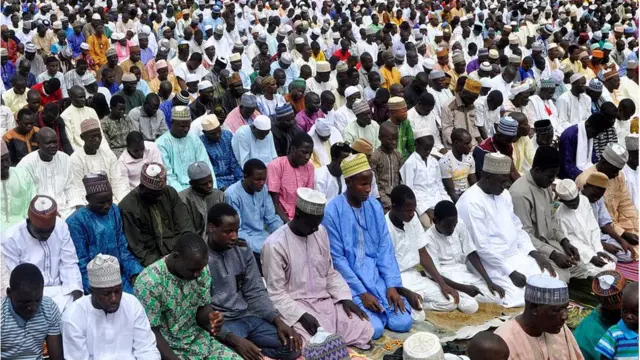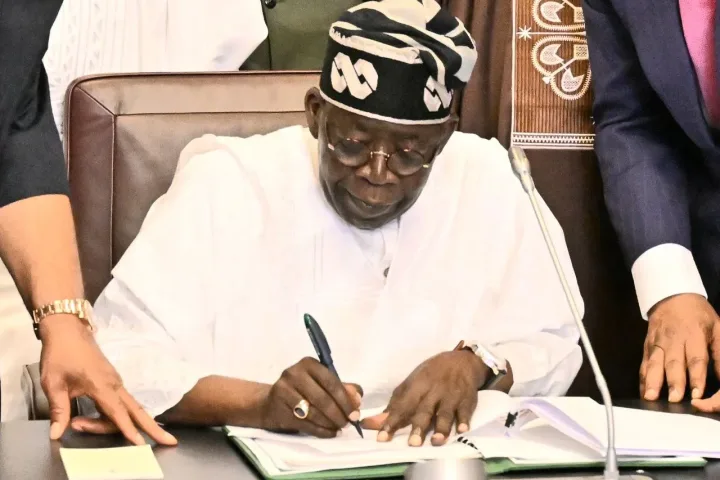The ongoing debate surrounding the proposed 2024 Tax Reform Bill has raised concerns across various sectors, but perhaps no group is more vocal than members of Nigeria’s academic community. The bill, currently before the National Assembly, includes provisions that could significantly affect the country’s educational landscape, especially the tertiary sector. With education being one of the most crucial sectors in any nation, the tax reform’s potential implications have triggered alarm bells.
At the heart of this debate is a key provision in Section 59 (3) of the Nigeria Tax Reform Bill 2024, which outlines how the Development Levy, a critical education tax that currently funds the Tertiary Education Trust Fund (TETFund), will be redistributed starting in 2025. Under the proposed reforms, TETFund’s share of the levy would be drastically reduced, with the fund’s allocation being entirely phased out by 2030. The bill outlines that, by 2030, TETFund will no longer receive any part of the levy, with NELFUND, the National Economic Livelihood Fund, slated to take 100% of the resources.
Join our WhatsApp ChannelThe implications of this proposed shift are significant for Nigeria’s public universities, polytechnics, and colleges of education, many of which rely heavily on TETFund for their survival. For years, TETFund has been the only substantial source of funding for these institutions, helping to support infrastructure, pay staff, and maintain basic facilities. Without it, these educational institutions could be left to struggle under the weight of insufficient funding, as many are already operating with limited resources.
Experts Weigh In on the Tax Reform Bills
In response to the proposed tax reforms, the Academic Staff Union of Universities (ASUU) has expressed strong opposition, with leaders stating that if the bill passes in its current form, it could lead to the collapse of public tertiary institutions across the country.
“We cannot allow this tax reform to destroy Nigerian universities,” said Professor Emmanuel Osodeke, National President of ASUU, during an interview with our correspondent. “TETFund is the lifeblood of our public tertiary institutions. If this bill is passed, we face a grim future where universities, polytechnics, and colleges of education will collapse. Our institutions are already underfunded, and removing TETFund as a source of support will be catastrophic. This is why we are ready to fight it. We are prepared for strikes and will continue to defend the future of education in this country.”
READ ALSO: Tax Reform Bills Will Spur Every Region To Be Financially Independent – Shehu Sani
Professor Osodeke’s concerns echo the fears of many others in the educational sector. According to him, the funding cuts will lead to a scenario where universities could no longer afford even basic services like electricity and maintenance. “If the government proceeds with this tax reform, it will render our institutions dysfunctional, just like primary and secondary schools which have already been destroyed due to a lack of funding,” he added.
In a similar vein, Mr. Mohammed Ibrahim, National President of the Senior Staff Association of Nigerian Universities (SSANU), emphasised the severe consequences of removing TETFund. Speaking candidly about the potential impact on universities, he said, “Our universities are surviving today because of TETFund. Without it, we would be facing a crisis. Our universities cannot pay electricity bills, and some have buildings that are falling apart. If the tax reform bill goes through, these problems will only worsen, and we will see the collapse of many public institutions.”
Mr. Ibrahim also pointed out that the proposed reforms fail to take into account the realities on the ground. “The government needs to consult with experts and listen to those on the frontlines of education. This bill is coming at a time when our universities are already battling issues like strikes, inadequate funding, and deteriorating infrastructure. This tax reform does not address these concerns but threatens to deepen the crisis,” he noted. He also mentioned the recent hardships faced by university staff, who have not been paid their November salaries due to bureaucratic delays linked to the migration from IPPIS to GIFMIS.
The Future of Nigeria’s Educational Sector
If the Tax Reform Bills pass as they stand, the future of tertiary education in Nigeria appears uncertain. Universities, polytechnics, and colleges of education already face multiple challenges, and without adequate funding, the quality of education is bound to suffer. The looming threat of the removal of TETFund could further cripple an already overstretched sector.
Many critics argue that while the government’s desire to restructure the tax system and ensure broader economic growth is understandable, education must remain a top priority. Funding for education, particularly tertiary education, is essential for the country’s future. Public universities and other tertiary institutions need substantial and consistent funding to maintain high standards of teaching, research, and student welfare. The tax reform bills, as currently written, fail to guarantee this support.
One of the major concerns is that the reallocation of funds from TETFund to NELFUND could lead to a situation where the educational sector is left with fewer resources, while other sectors receive more. This could push many public institutions to the brink of collapse, affecting millions of students and staff.
Professor Osodeke was clear about the stakes involved: “If this tax reform goes through, we will not just see the closure of universities—we will be witnessing the destruction of Nigeria’s future,” he warned. For Mr. Ibrahim, the reforms are a misstep at a time when the education sector needs more support, not less. He concluded, “It’s crucial that the government addresses the real needs of universities and works to ensure that we have the resources to educate Nigeria’s future leaders.”
The battle over the Tax Reform Bills is not just about taxes—it is a fight for the future of Nigeria’s education system. As it stands, the bill threatens to weaken the country’s tertiary institutions by stripping them of essential funding. For now, the academic community remains resolute in its opposition, and the coming months will likely see more protests and calls for revisions to the proposed tax reforms. The government will have to decide: will it prioritize economic restructuring at the expense of education, or will it find a way to balance both?
Emmanuel Ochayi is a journalist. He is a graduate of the University of Lagos, School of first choice and the nations pride. Emmanuel is keen on exploring writing angles in different areas, including Business, climate change, politics, Education, and others.



















Follow Us